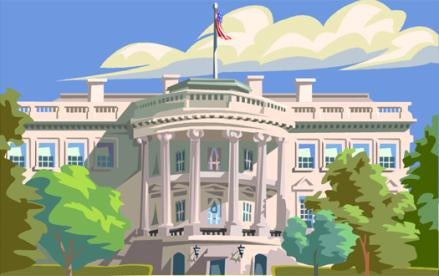-
Let’s Talk Numbers: White House Proposes Fiscal Year 2024 Budget
On March 9, President Biden revealed his annual budget proposal for Fiscal Year (FY) 2024. The Budget requests both discretionary and mandatory resources to “out-compete China and advance American prosperity globally.”
-
Indo-Pacific Nexus: The Budget requests $2 billion to create a new International Infrastructure Fund to support “hard” critical infrastructure; $2 billion to create a new equity revolving fund at the U.S. International Development Finance Corporation to support equity investments; and $2 billion to make “game-changing investments in the Indo-Pacific to strengthen partner economies and support their efforts in pushing back against predatory efforts.” As part of this proposal, the Budget also requests a total of $7.1 billion over the next 20 years for the Compacts of Free Association with the Freely Associated States of the Marshall Islands, Micronesia, and Palau.
-
Defense Nexus: With regards to Department of Defense (DoD) spending, the request exceeded $886 billion — the biggest-ever defense budget in nominal terms, and includes $9.1 billion to promote “U.S. force posture, infrastructure, presence, and readiness” in the Indo-Pacific region to counter China.
-
Outbound Investment: In separate reports, the U.S. Departments of Commerce and the Treasury outlined the potential “establishment of a program to address the national security threats emanating from outbound investments from the United States in certain sectors that are critical for U.S. national security.”
-
“Treasury will lead on administration of any program,” and “Commerce will provide the core sector-specific technical expertise and industry connectivity necessary to accurately define, scope, and assess the appropriate sectors that may be covered by any regime.”
-
How much? Treasury said it would need $10 million to set up the program for fiscal year 2023.
-
What’s next: Unsurprisingly, Democratic and Republican leadership have expressed contrasting opinions on the Budget and associated priorities.
Next Week… Chinese President Xi travels to Russia, which DC policymakers will watch for any impacts on the war in Ukraine (March 20-22)…Secretary of State Antony Blinken will testify to Congress on the State Departments budget request (March 22)…U.S. Trade Representative Katherine Tai will testify to Congress on the administration’s 2023 trade agenda (March 23)…the Select China Committee will hold its second prime-time hearing on “Uyghur Genocide” (March 23)…
2. Will the RESTRICT Act really restrict much?
On March 7, Senate Select Committee on Intelligence Chair Mark Warner (D-VA) and Senate Commerce Subcommittee on Communications, Media and Broadband Ranking Member John Thune (R-SD) led a group of 12 bipartisan senators to introduce the Restricting the Emergence of Security Threats that Risk Information and Communications Technology (RESTRICT) Act.
-
What it does: The bill empowers the Secretary of Commerce with the authority and responsibility to identify and counter threats from foreign technology. The powers will include a series of mitigation measures, including divestiture up to a ban.
-
In their words: Proponents of the RESTRICT Act characterize the Act as a new, comprehensive, risk-based approach that proactively tackles sources of potentially dangerous technology before it gains a foothold in the US.
-
Our analysis: However, on closer inspection, the bill is not all too new. It contains provisions duplicative of existing authorities and some argue would be overbroad, opaque, and costly. The bill would also open the door to potential retroactive divestment of holdings, which may be especially problematic for business stakeholders.
What do others think?
-
National Security Advisor Jake Sullivan issued a statement signaling support for the bill’s approach.
-
Senate Majority Leader Chuck Schumer (D-NY) said he would take a look at the Warner-Thune proposal before opining publicly on the issue
-
House Foreign Affairs Committee (HFAC) Chair Michael McCaul (R-TX) is in talks with Sen. Warner about developing a bicameral bill to address foreign technologies from countries of concern.
-
House Speaker Kevin McCarthy (R-CA) and House Majority Leader Steve Scalise (R-LA) said they are in no rush to move related legislation.
-
Rep. Jim Banks (R-IN) said “Congress already has produced multiple bills that would finish what the Trump administration started and ban TikTok,” adding, “the Biden administration is endorsing this half-measure to avoid confronting their biggest benefactors—China and Big Tech.”
-
Sen. Marco Rubio (R-FL) said “[it] gives the illusion of action, but it’s not action.” He also said, “I think [Warner’s] intentions are good in terms of how he views the whole thing, but his bill will not ban TikTok,” adding “I think that’s what the White House wants. I think he’s trying to offer a bill that the White House will be supportive of and that he thinks can get passed.”
3. By the Numbers: Public Perception of China
A new Gallup poll finds a record-low 15% of Americans view China favorably, down a whopping 38 points in the last five years.
-
Why this matters: This development presents itself as Republicans and Democrats alike are sounding hawkish on China—a rare bipartisan consensus—though more Republicans view China as a “critical threat” to U.S. national security.
4. Notable Quotables
-
Acting Deputy Secretary of State for Management and Resources John Bass following the release of the White House Fiscal Year 2024 Budget: “Our approach towards the generational challenge posed by the PRC focuses on investing in our own domestic capabilities, aligning our efforts with those of allies and partners and competing with the PRC where interests and values differ.”
-
Secretary of Commerce Gina Raimondo: “The U.S. does not seek to decouple from China nor does it seek a technological decoupling.” It is about “keeping eyes wide open” to China’s technology ambitions and “we need to protect ourselves and our allies” from that.
-
Senior Advisor to the President for Clean Energy Innovation and Implementation John Podesta: Acknowledged China will be “big players” in expanding U.S. domestic energy production, but added the United States “can’t be beholden to only Chinese supply for critical materials, when they have indicated that they’re perfectly prepared to use their economic power when it serves their interests in a strategic way.”
-
Sen. Joe Manchin (D-WV): “I will do everything in my power to prevent this administration from welcoming China to take federal dollars with open arms.”






 i
i


